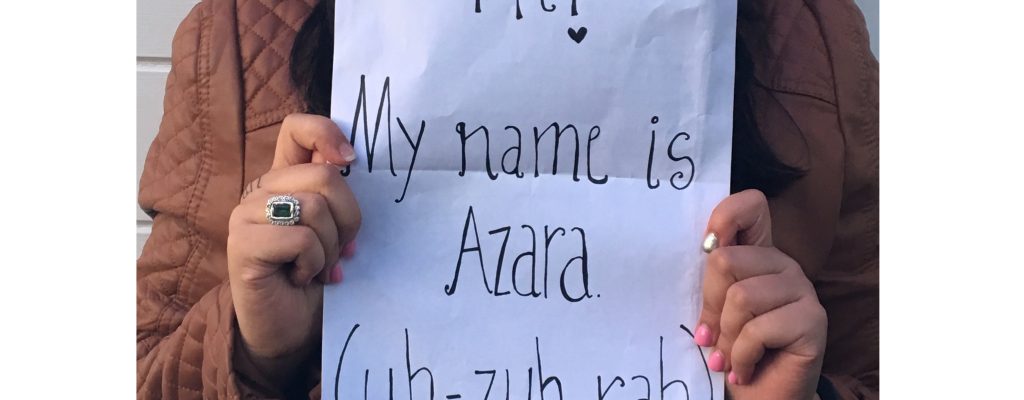When travelling to a new place you are often advised to interact as much as you can with people native to the place. Make new friends, gather new information and really soak in the culture and mannerisms that it has to offer. This not only makes you aware of the similarities and differences between your culture and theirs but also makes you see things in a whole new light. As a student travelling alone for the first time, I am trying to do just that in England. During the first few days of my stay at Dorchester House, I interacted with some really interesting students studying at Bournemouth University. My conversation with one student went something like this:
Me: Hi, my name is Azara. What’s your name?
Stranger: Hello, nice to meet you. My name is India.
Me: What? I am sorry what’s your name again?
Stranger: India. Yes, my name is India!
Me: Oh…you wouldn’t believe it, but I am from India.
Hilarious as it sounds, it took me a while to wrap my head around the idea that a real, breathing person was named after my country. It was like meeting someone named United States of America or Japan. It just didn’t sound right.
India explained to me that her name was quite common in the UK. She was named so as she was born on one of the Indian summer days (a day with unseasonably warm, dry and calm weather, usually following a period of colder weather or frost in the late Autumn) in the month of October. Though the name was common for her, it was the most fascinating thing I had heard since I got here.
That really got me thinking about how something as universal as a name is so vastly shaped by our culture and traditions. In India, names are given a great deal of importance. So much can be said about a person just by his name. Surnames are mostly derived from the place we belong to, or the profession of our ancestors. The only distinctive ones are those where the surname is actually the name of a caste – a concept very unique to the country.
When a child is born, there are many ‘traditional’ ways of choosing the name of a child. One way is the horoscope, which maps the planetary positions to the time of birth of the child. In the northern parts of the country, every star is associated with a letter of the alphabet, and the child’s name begins with the alphabet of the constellation s/he is born under. In the south, the child is often named after the constellation itself.
That’s not all. The most common way to pick a name is to use that of a god or goddess. Though it sounds simple it isn’t quite so when there are 33 crore (1 crore = 10 million) gods and goddesses.
Then there are different traditions and ceremonies that are involved in naming a child, depending on which part of the country you come from. Your name is your true identity. However, names in the UK don’t seem to be as driven by traditions and elaborate rituals but instead, more by personal experiences and preferences of your parents and the family that you are born into.
Is it really all that different, though? Well, not really. Be it in India or in England, nobody seems to be able to pronounce my name the right way – at least not the first time. I’ve got various mispronounced versions such as Azaaaaraa, to some totally unrelated versions nowhere even close to my original name such as Ezra (yes, the singer) to A Zara (yes, the clothing brand). So I might as well take this opportunity to introduce myself.
Hi, I am Azara (Uh-zuh-rah).

Leave a Reply